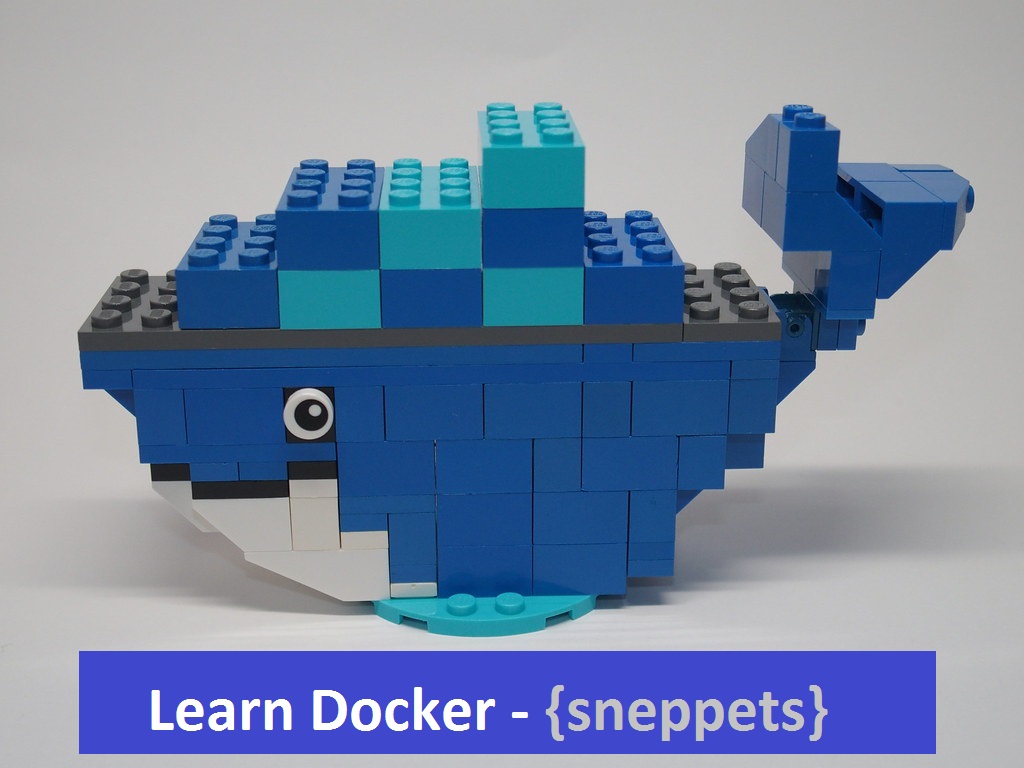Unable to acquire the dpkg frontend lock (/var/lib/dpkg/lock), are you root ?
This tutorial guides you to resolve errors Unable to acquire the dpkg frontend lock (/var/lib/dpkg/lock-frontend), are you root ? and Could not open lock file /var/lib/dpkg/lock-frontend – open (13: Permission denied) when you are trying to install softwares in your docker container.
Error: Unable to acquire the dpkg frontend lock, are you root ?
Let’s use standard docker ubuntu image for our example. The below docker run command will result in error because non-root user are not allowed to install software in the docker container. Let’s see how to install required softwares in the docker container.
$ docker run -d ubuntu apt-get update && apt-get install -y openssh-server && /usr/sbin/sshd -D 701462bd115bbdba023ec9908f5d889737c6faa2670db3482a307a7be3019a80 ******************************************************************************** You are running apt-get inside of Cloud Shell. Note that your Cloud Shell machine is ephemeral and no system-wide change will persist beyond session end. To suppress this warning, create an empty ~/.cloudshell/no-apt-get-warning file. The command will automatically proceed in 5 seconds or on any key. Visit https://cloud.google.com/shell/help for more information. ******************************************************************************** E: Could not open lock file /var/lib/dpkg/lock-frontend - open (13: Permission denied) E: Unable to acquire the dpkg frontend lock (/var/lib/dpkg/lock-frontend), are you root?
First, run the following docker command which will start bash session with root user. Then in the bash prompt run apt-get commands as shown.
$ docker run -it ubuntu bash //bash session root@35ef2af2110d:/# apt-get update && apt-get install -y openssh-server ------- ------- Creating config file /etc/ssh/sshd_config with new version Creating SSH2 RSA key; this may take some time ... 3072 SHA256:TfRXuNvNIZXYKb6mEQYfsdPlw+hbsAFRpFZf0+h407c root@35ef2af2110d (RSA) Creating SSH2 ECDSA key; this may take some time ... 256 SHA256:P8/CM7WpDygPx0A8fcZXyCmhSdYORqg0jS10C8Oh6hM root@35ef2af2110d (ECDSA) Creating SSH2 ED25519 key; this may take some time ... 256 SHA256:J+z0EYlWJ5UvRAGHCN2Zp2I+O2mO51QGYaehZNYTz98 root@35ef2af2110d (ED25519) Created symlink /etc/systemd/system/sshd.service → /lib/systemd/system/ssh.service. Created symlink /etc/systemd/system/multi-user.target.wants/ssh.service → /lib/systemd/system/ssh.service. invoke-rc.d: could not determine current runlevel invoke-rc.d: policy-rc.d denied execution of start. Setting up python3-chardet (3.0.4-4build1) ... Setting up python3-requests (2.22.0-2ubuntu1) ... Setting up networkd-dispatcher (2.0.1-1) ... Created symlink /etc/systemd/system/multi-user.target.wants/networkd-dispatcher.service → /lib/systemd/system/networkd-dispatcher.service. Setting up ssh-import-id (5.10-0ubuntu1) ... Attempting to convert /etc/ssh/ssh_import_id Processing triggers for systemd (245.4-4ubuntu3.2) ... Processing triggers for libc-bin (2.31-0ubuntu9) ... Processing triggers for ca-certificates (20190110ubuntu1.1) ... Updating certificates in /etc/ssl/certs... 0 added, 0 removed; done. Running hooks in /etc/ca-certificates/update.d... done.
Next, run the following commands to make necessary changes in the softwares installed and in the container’s file system.
root@35ef2af2110d:/# mkdir /var/run/sshd
root@35ef2af2110d:/# adduser admin
Adding user `admin' ...
Adding new group `admin' (1000) ...
Adding new user `admin' (1000) with group `admin' ...
Creating home directory `/home/admin' ...
Copying files from `/etc/skel' ...
New password:
Retype new password:
passwd: password updated successfully
Changing the user information for admin
Enter the new value, or press ENTER for the default
Full Name []: Admin
Room Number []: 1
Work Phone []: 1234567890
Home Phone []: 2345678901
Other []:
Is the information correct? [Y/n] y
root@35ef2af2110d:/# usermod -aG sudo admin
root@35ef2af2110d:/# sed 's@session\s*required\s*pam_loginuid.so@session optional pam_loginuid.so@g' -i /etc/pam.d/sshd
root@35ef2af2110d:/# echo 'export NOTVISIBLE="in users profile"' >> ~/.bashrc
root@35ef2af2110d:/# echo "export VISIBLE=now" >> /etc/profile
root@35ef2af2110d:/# exit
exit
Once you are done with the required changes, you can create a copy image (ubuntu_sshd) of your modified container with the following docker commit command.
$ docker commit `docker ps -lq` ubuntu_sshd sha256:a382afed9966e53c09d76b095e79342613d5a65c68725374895537fe6295ea24 $ docker images REPOSITORY TAG IMAGE ID CREATED SIZE ubuntu_sshd latest a382afed9966 10 seconds ago 222MB ubuntu latest 1e4467b07108 10 days ago 73.9MB
Now, you can use new image and run docker instance using the following command. This command will start new container and run sshd daemon in the container.
$ docker run -d -p 2222:22 ubuntu_sshd /bin/bash -c "/usr/sbin/sshd -D" a574cef96dfc4b15f907d5315bdd060ef7365b7dcfd700ad7a73a4d3b1e3ac3c $ docker ps -a CONTAINER ID IMAGE COMMAND CREATED STATUS PORTS NAMES a574cef96dfc ubuntu_sshd "/bin/bash -c '/usr/…" 5 minutes ago Up 5 minutes 0.0.0.0:2222->22/tcp pensive_agnesi 35ef2af2110d ubuntu "bash" 16 minutes ago Exited (0) 8 minutes ago laughing_nobel
Finally, you can SSH in to your docker container using the following command.
$ ssh admin@localhost -p 2222 The authenticity of host '[localhost]:2222 ([127.0.0.1]:2222)' can't be established. ECDSA key fingerprint is SHA256:P8/CM7WpDygPx0A8fcZXyCmhSdYORqg0jS10C8Oh6hM. Are you sure you want to continue connecting (yes/no)? yes Warning: Permanently added '[localhost]:2222' (ECDSA) to the list of known hosts. admin@localhost's password: Welcome to Ubuntu 20.04 LTS (GNU/Linux 4.19.112+ x86_64) * Documentation: https://help.ubuntu.com * Management: https://landscape.canonical.com * Support: https://ubuntu.com/advantage This system has been minimized by removing packages and content that are not required on a system that users do not log into. To restore this content, you can run the 'unminimize' command. The programs included with the Ubuntu system are free software; the exact distribution terms for each program are described in the individual files in /usr/share/doc/*/copyright. Ubuntu comes with ABSOLUTELY NO WARRANTY, to the extent permitted by applicable law. admin@a574cef96dfc:~$
Once you SSH in to docker container with non-root user (admin) as shown above, then you can install any softwares using non root user as well and you should not see those errors.
Hope it helped 🙂
Also See:
- Explore Docker Container’s File System.
- Get Docker Container’s IP Address from the Host.
- Copy Files between Host and Docker Container.
- Remove All Unused and Dangling Docker Images ?
- Difference between CMD and ENTRYPOINT in Dockerfile ?
- Ping inside the docker container from host
- Docker: Error response from daemon: OCI runtime create failed: container_linux.go:349
- List the directories inside the docker container
- Add new user to the Docker container using Dockerfile
- Docker images are storage location
- Difference between Docker Images, Containers and Registries
- Clean up Old Stopped Docker Containers

